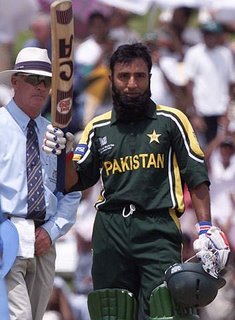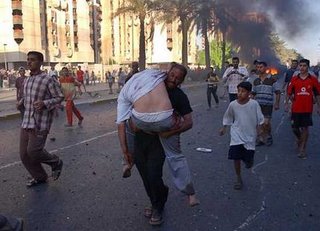Tomorrow marks the 5th anniversary of the US invasion of Afghanistan. Somehow this year I am much more reflective about the event. Perhaps "enough" time has passed by for me to make more sense of the war, rather than being intimately caught up in it. I remember being in Boston when Bush came on TV to announce that he had ordered the start of the war. It was such a depressing night. I remember immediately emailing my sister and her husband that the US had "let slip the dogs of war" (see, convent school was good for something - and yes, this was before I had my beautiful phone with which I can text the world). I was trying to be clever to cover up my deep sadness.
For some reason, for that first month or so, I had been holding out some hope that maybe war could be averted, that perhaps the world would come to its senses, that maybe the US would engage in a real overhaul of its imperialistic foreign policy. I remember following the iterations of Taliban offers as they first stated that they didn't know where Osama was; then agreed to turn him over to an international court with Shariah rules; then agreed to try him themselves in a local Shariah court. I kept hoping that maybe
something would work. I hoped this despite my training as an academic and my political education as a lefist - that is to say, despite my knowledge of the fact that what was
really going to happen was going to be awful, violent, and extreme.
The thing is, I
wanted to believe that there was another possibility, a possible path that we could all take that was peaceful and addressed the existing structural issues that had led us down the path to 9-11. I wanted to believe all this because I wanted to believe in the promise of peace. Because the reality was that we were witnessing the death of the idea of peace, at least for my generation, and that's something that is hard even for a cynic like to me take.
And honestly, the thing is, I'm
NOT a cynic. I'm an optimist, an idealist, a hopeless dreamer. And 5 years ago, that idealism was very sorely tested.
It was such a feeling of madness, knowing exactly what was necessary to chart a course to peace, and realizing that no one around you gets it. For the first time, I felt real empathy with those mad people who are always muttering to themselves, the conspiracy theorists, the end-of-worlders. I tried talking reason to anyone who would listen, but really, no one wanted to listen, and eventually I too succumbed to fatigue and fear. Complicating all this was the gut knowledge that what was also being set in motion was the collapse of my personal life. That's too long and painful a story that I frankly still can't talk about. But I do remember the feeling of helplessness as I knew what I was walking towards, and I couldn't do a thing about it. Knowledge was painful, in a very deeply personal way.
It was a difficult time to be a thinking person and an activist. I mean, I know it seems hard
now, but trust me, it was much, much worse then. In a way, the invasion of Afghanistan proved somewhat useful to me at a personal level. Now I had a great sorting mechanism to figure out who I really wanted to talk to. Because the Afghanistan war separated the true anti-imperialists and peace activists from the mere "nice" liberals. And frankly, when the Iraq war came around, I was no longer shocked as many were at what was happening. It frankly seemed to be the logical progression of the imperialist project that it is.
I guess I could end this in a sentimental way by saying that we should remember the Afghan victims (whose suffering is only getting exacerbated). But really, I want to take a moment for myself and my friends, who are struggling to remain idealistic even after living through that harrowing experience. I hope we continue to dream, even though it seems utterly pointless. I don't know how my friends keep doing it, but they are an inspiration to me and help me to keep dreaming as well.

